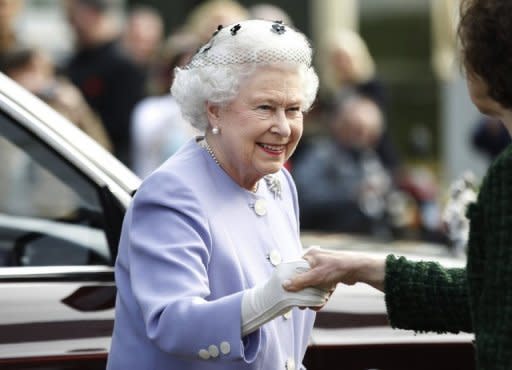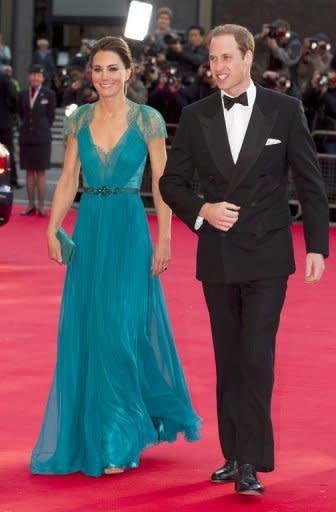Queen marks diamond jubilee riding wave of popularity
Millions of people will celebrate Queen Elizabeth II's diamond jubilee in Britain as the monarch marks 60 years on the throne in the knowledge that the royal family has never been more popular. The celebrations reach a climax over four days from June 2 to June 5 with a 1,000-boat river pageant on the Thames, a concert featuring some of pop's biggest names and the pomp and splendour of a ceremonial parade. Britons have been granted an unusual two-day public holiday after the weekend to mark a truly historic occasion -- the queen is only the second British monarch to celebrate a diamond jubilee, after queen Victoria. One million people are expected to line the Thames to see the pageant on June 3, with the queen's ceremonial barge at the centre of a water-borne extravaganza of steam boats and tugs, speed boats and historic vessels. A chain of beacons will be lit across the globe the following day, culminating with the queen lighting the national beacon on a stage in front of Buckingham Palace where Paul McCartney is among the stars performing in her honour. There will also be more informal celebrations up and down the country as people hold street parties in a bid to recreate the spirit of the silver jublilee in 1977. Prince William and his wife Catherine will represent the new generation of royals when they join a carriage procession on June 5. Coming hot on the heels of William's wedding to the then Kate Middleton last year, the jubilee is likely to further boost the royals' popularity, with a poll this month showing that 80 percent of Britons want the country to remain a monarchy. But amid the celebrations and the acclaim for the queen it is easy to forget that just a decade ago, the picture was very different. There was palpable ill-will towards the queen following the death of Diana, princess of Wales in a Paris car crash in 1997, when the monarch was widely criticised for failing to join in the public outpouring of grief. She did eventually bow to Diana's coffin as it passed, a moment that historian Kate Williams says was a turning point. Now there is a "massive surge" of affection for the queen both in Britain and across the Commonwealth, said Williams, the author of "Young Elizabeth: The Making of our Queen". "At the moment the queen's popularity is as high as it's ever been since her coronation," she told AFP. "This is really quite incredible when you think about how extraordinarily unpopular she was after the death of Diana. "The amount of people in this country who were either indifferent or felt that the Windsors had got no point at all and should be abolished -- that has all changed. "It looks like the entirety of Britain is going to turn out in the first weekend in June." At the centre of it all is an 86-year-old great-grandmother, who was visiting Kenya in February 1952 when she was woken to be told by her husband Prince Philip that her father, king George VI, had died at the age of 56, thrusting her into the role of queen. The coronation took place more than a year later, on June 2, 1953, in Westminster Abbey. Six decades on, the packed programme of events to mark the jubilee will be in sharp contrast to the first diamond jubilee in 1897. Queen Victoria was too lame to manage the steps of St Paul's Cathedral and so a short service of thanksgiving was held outside the building. The current queen is apparently in good health and has travelled widely in Britain this year to meet her subjects, although in a nod to her age she has left trips abroad to mark the jubilee to other members of the royal family. Her husband needed emergency heart surgery in December but Prince Philip is expected to play a full part in the jubilee celebrations, just a week before his 91st birthday.




